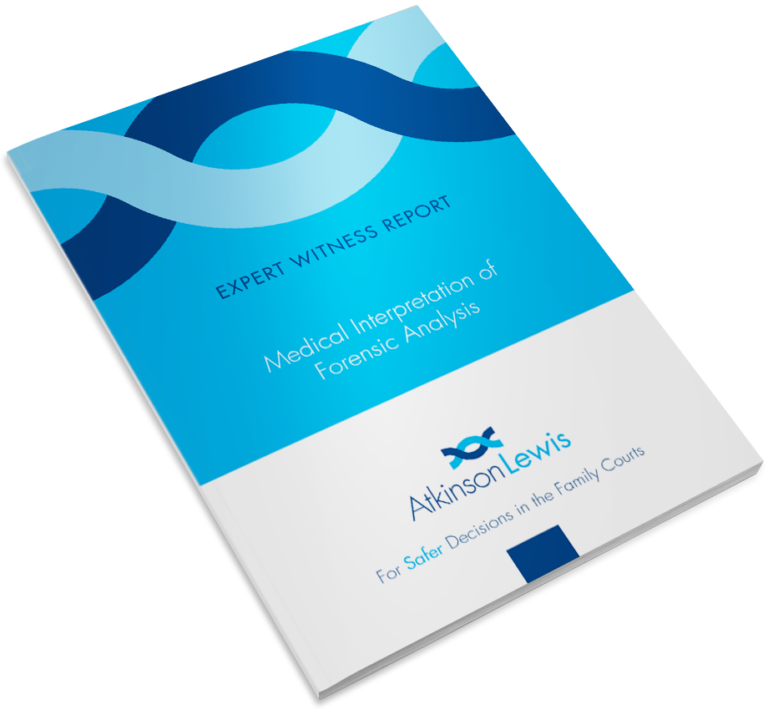Psychiatric Reports
- Enhanced medical interpretation for child custody cases
- In-depth assessment by an experienced psychiatrist, specialising in drug and alcohol misuse
- Establish causes and triggers, dependency type and levels of risk
Does a custody case in the family courts need a full psychiatric evaluation?
The short answer is “sometimes, yes” – but it’s not always necessary.
In straight forward cases, we can find the answers we need through our standard MIFA process, where an experienced psychiatrist reviews the parent’s medical notes and the observations made by our highly trained sample collectors.
If lab results are consistent, with no conflicting evidence after multiple tests – and if there’s nothing in the notes that will call results into question – we can perhaps draw safe conclusions without further assessment.
But in many cases, we recommend digging deeper:
- If the lab findings are less conclusive…
- If the parent’s medical history is more complex…
- If past events suggest a greater level of risk…
Then there’s a strong case for a court-ordered evaluation.
What’s in a psychiatric assessment?
By our Medical Director Dr Catherine Pyves
It all starts with a review, to get the client’s full background: medical notes, social work chronology, police records, court bundles and any other documentation that sheds light on their physical and mental health.
Equipped with this information, and the reasons for the court order, we can put together a flexible assessment.
This takes the form of a structured conversation, rather than a set list of interrogations. It’s a natural discovery process, built on trust and rapport, where we draw out their life stories from an evolving dialogue. Then slowly – piece by piece – a picture starts to emerge.
Trust is perhaps the most important factor here. So we’ll always set clear, transparent ground rules, especially on the thorny issue of confidentiality. We’ll stress that we have to disclose anything that involves harm to another person – so they’ll always know the consequences of anything they choose to share.
Turning to the assessment itself, let’s take alcohol misuse for illustration.
Our first priority is to establish their pattern of drinking. We need to understand recency, type of alcohol, quantities, repetitions, and the behavioural impact of both drinking and cessation.
To this end, their drinking history is imperative. We’ll explore:
- Their first encounter with alcohol
- How the habit progressed
- How alcohol has affected them: the impact on work or education, relationships, personal health, criminality and more
- How they’ve coped through periods of abstinence
- Triggers that have led to relapses – including relationship dynamics
- Plus any lessons learned through diagnosis or treatment
As we start to gain this deeper insight, we can also consider predisposing factors. Here, we’re looking to answer a wide range of questions – including:
- Is there a family history of alcohol dependency? (Experts have long been debating the notion of a ‘drinking gene’, and the impact of being raised in an alcohol-heavy environment.)
- How were they shaped by early life events – the loss of a parent, divorce or separation, exposure to domestic violence, child abuse, or any other incident that could involve social services?
- Did they experience problems in school, like isolation, low attainment, bullying or exclusion?
- Are they trying to quit other substances, and using alcohol as a diversion?
- Is alcohol harming their mental health – and is poor mental health increasing their consumption? (One problem often exacerbates the other, which part-explains why alcohol is so often implicated in suicide.)
Once we’ve weighed these and other factors, we can move towards a clinical diagnosis: are they a social drinker, binge drinker or alcohol-dependent? Or is their condition even more problematic – requiring a deeper mental state examination?
Following diagnosis, we can determine treatment and make our recommendations to the court, knowing we understand the type and level of risk presented.
This (briefly) describes the assessment process where alcohol is involved – and it’s a similar tale for drug use.
Again, it’s about understanding the deep-seated causes, the level of dependency and the behavioural impact – ultimately, to establish the level of risk that the client may present to themselves and their family.
It can be a lengthy process – the first interview alone will often take 4 hours or more. But in complex cases, where data is unclear or the risk is harder to quantify, it’s the only way to give the court a fully considered – and balanced – medical opinion.
Psychiatric Vs Psychological Reporting: what’s the difference?
Theoretically, either type of report can lead the court to the same conclusion. But the discovery methods are radically different – as are the professionals who carry out the work.
If you’re weighing up the alternatives, here are some key distinctions:
- A psychiatrist is medically qualified, so they’ll understand mental health in a holistic sense. A psychologist has trained solely in areas of the mind.
- A psychiatrist gets to know a patient through conversation, in a way that builds trust, covers sensitive ground and allows for deviations. A psychologist works to a strict testing and observation process that rarely goes off script, so important points that emerge in testing can be skirted over.
- A psychiatrist can gain a deep understanding of the patient after 2-4 hours of talking. A psychologist will spend many more hours testing and observing – and that extra time is reflected in the cost.
- A psychiatrist is trained to dictate their findings, so their reports are turned around quickly. Typically, a psychologist will compile their report as they sift through results, which can slow delivery. (Naturally, this also affects billing.)
Given these contrasts, critics of psychological reporting have argued it’s a more expensive process for a less insightful report.
Cost-wise, that’s easy to quantify. Shop around and you’ll see:
- Psychiatric reports cost around £2000 – £3000
- Psychological reports are in the region of £10,000
But as for quality? That’s a decision every family law professional has to make for themselves.
All we can say is, we no longer carry out psychological reports because we’ve come to the view that they’re less valuable to the court.
Why work with Atkinson Lewis?
- A “Data Plus” approach, putting lab results in context
- Medical interpretation by a drug and alcohol specialist
- End to end support for public and private law cases: from sample collection to lab analysis and medical review
- MIFA Report: an expert witness statement accepted by UK Family Courts
- All testing conducted by trusted partners in ISO/IEC 17025 Accredited Testing Laboratory – certified for multiple tests inc. hair drug testing and hair/blood alcohol testing
- Friendly, non-judgemental sample collectors working in most UK regions – highly trained to follow strict chain of custody protocols
- Transparent pricing for LAA approval
- Split-billing between all parties involved
- Hands-on customer service team, working all hours to take on new instructions


A full psychiatric evaluation enhances our MIFA report:
Medical Interpretation of Forensic Analysis
Or click below for other ways we can support your case:
In Private & Public Law Cases
You Can Rely on Atkinson Lewis
Local AuthorityAn incredible job!
Really helpful staff and second-to-none customer service. They are all really approachable and friendly. The collections are always on time and professional. In fact we have never had to deal with a situation in which they have ever let us down. As a result I think we take their brilliant service a little for granted! Thanks Atkinson Lewis for an incredible job!
ParalegalAlways my first point of call
Very helpful and approachable and always on hand to answer any queries. They are very accommodating in terms of setting up appointments and make the process very easy for legal services. Excellent service provided and always my first point of call for any alcohol/ drug or DNA testing.
How Can We Help You Today?
We’re here to assist with private and public cases in the Family Courts. If you’ve got a question, need a cost or you’re ready with an instruction, give us some details and we’ll get back to you quickly.